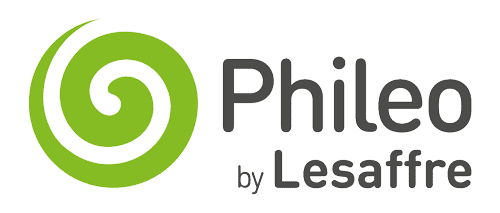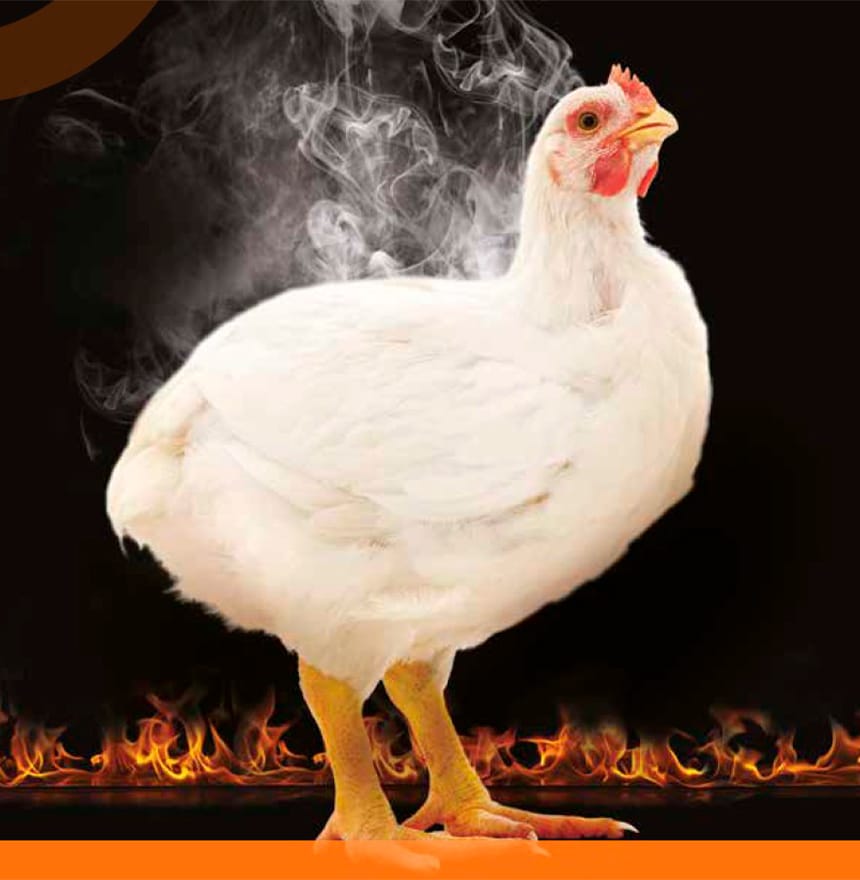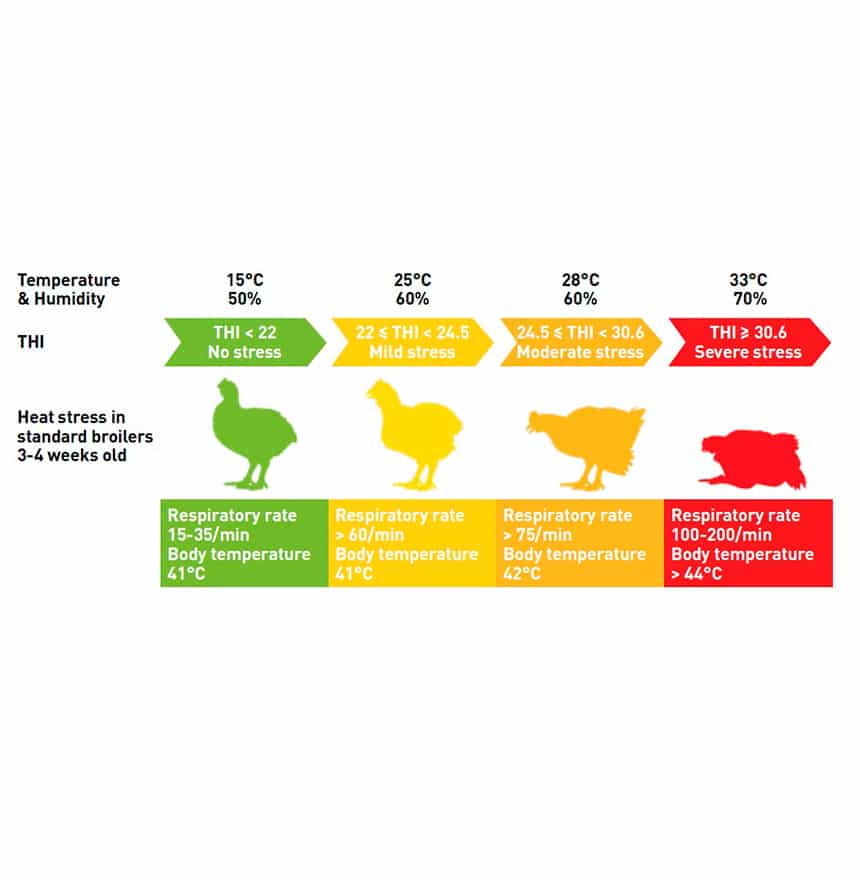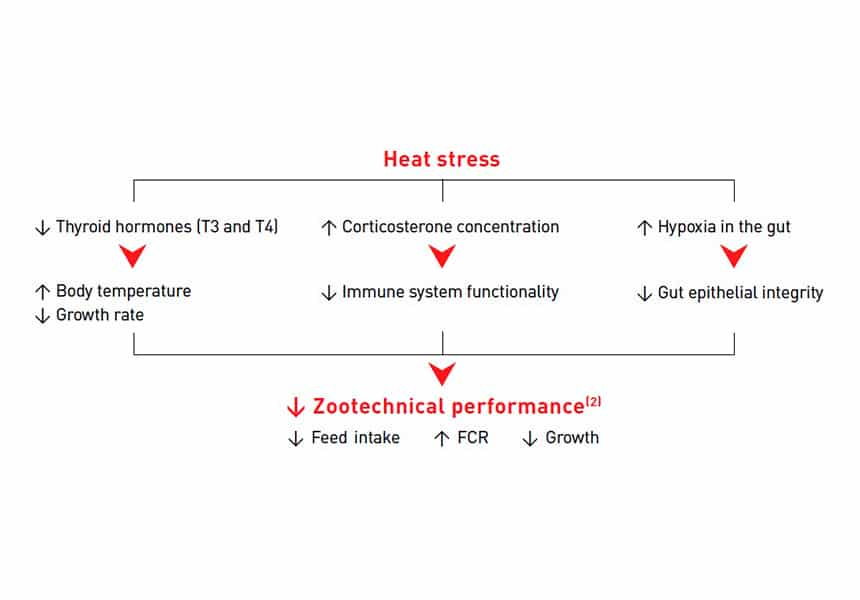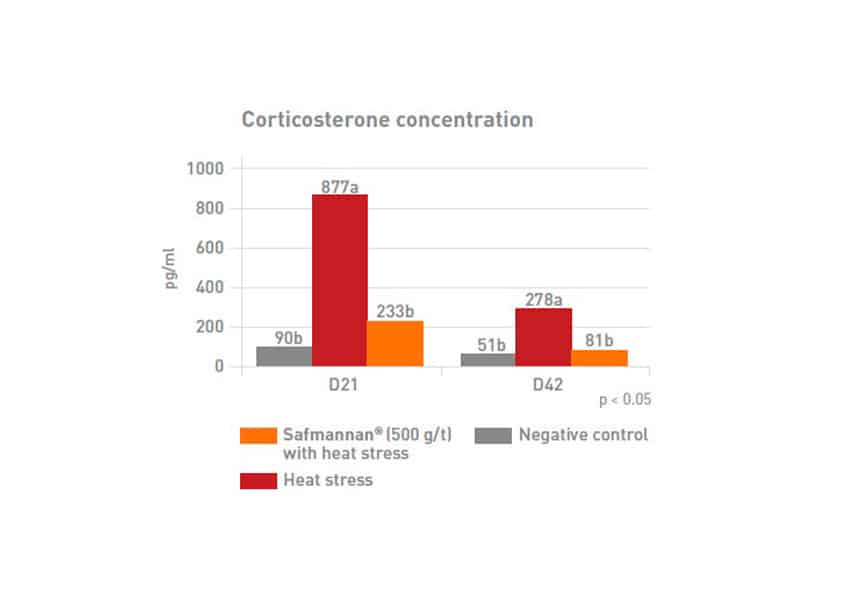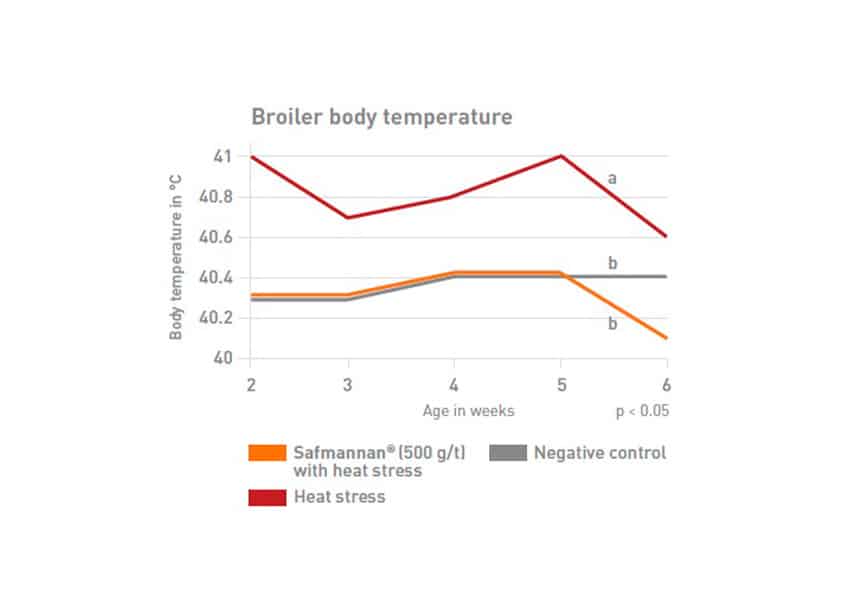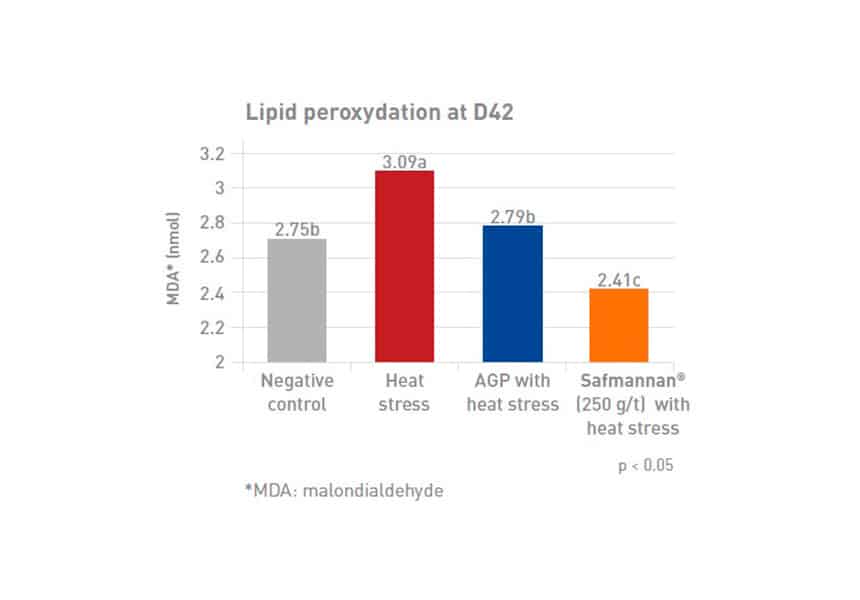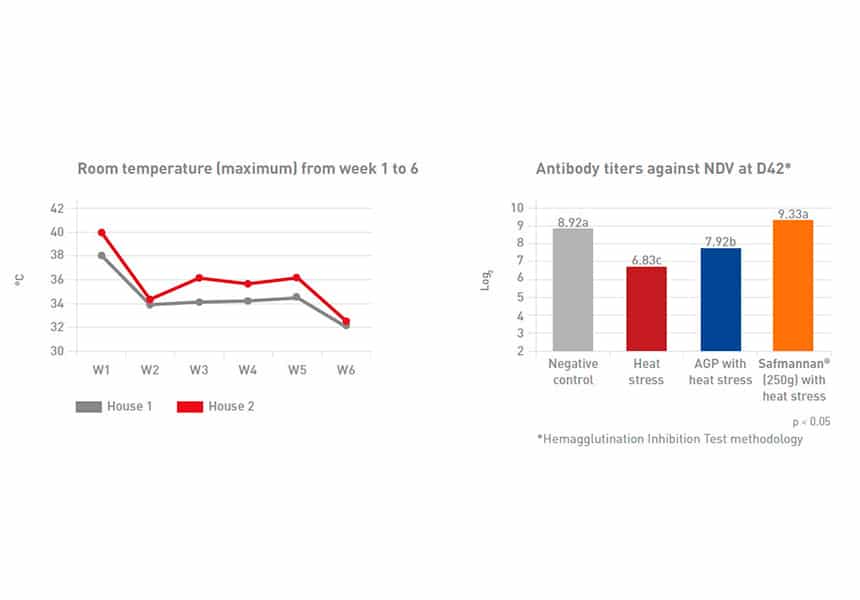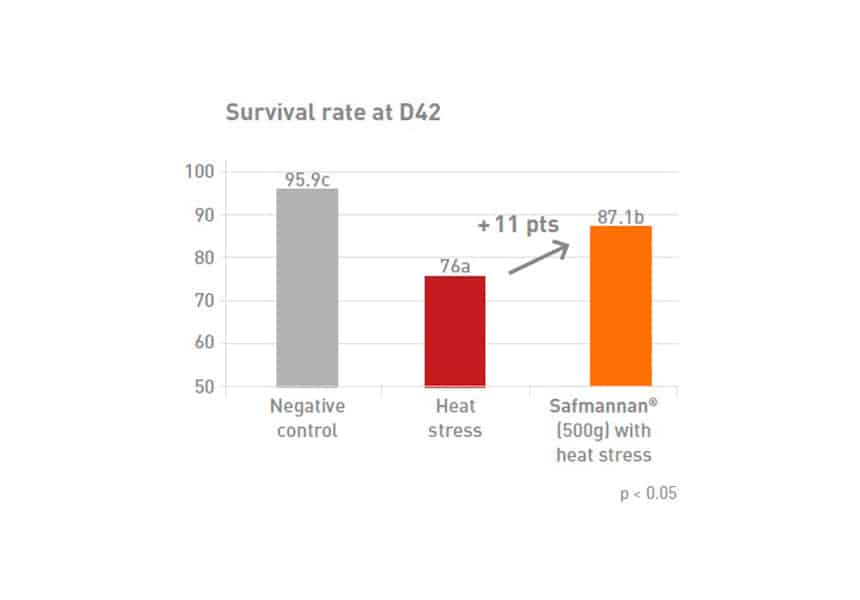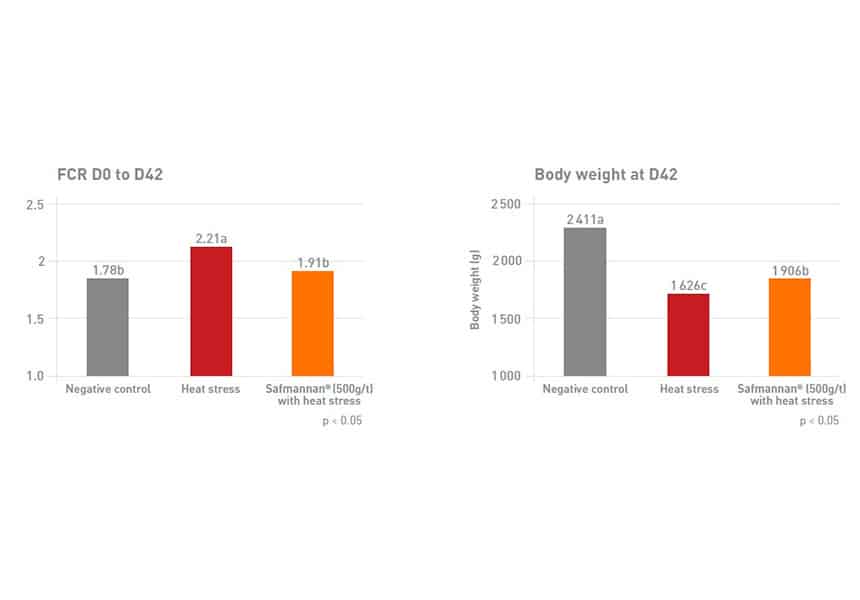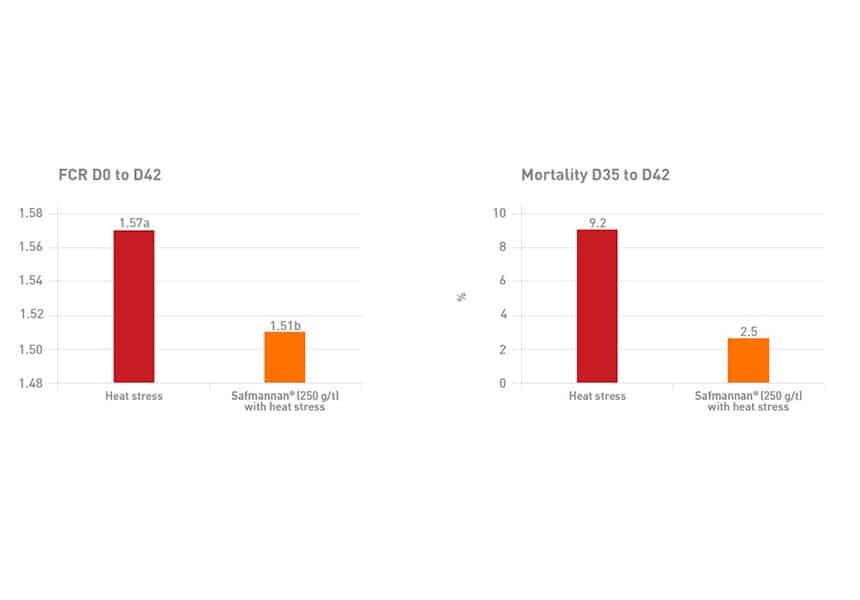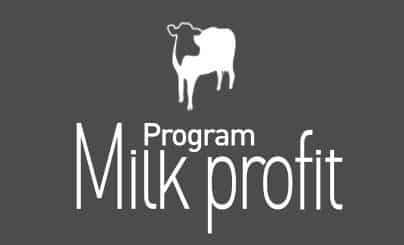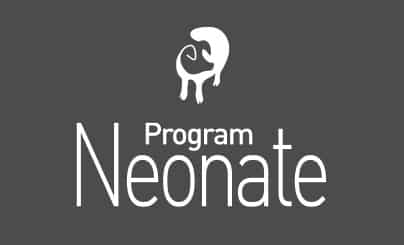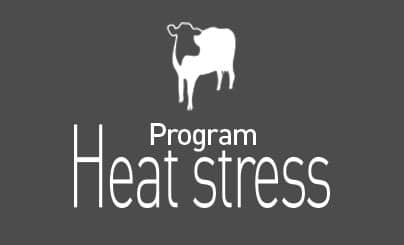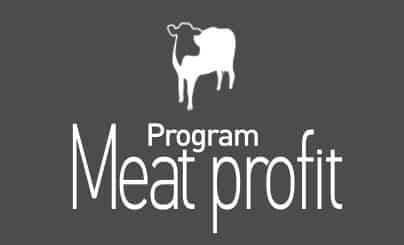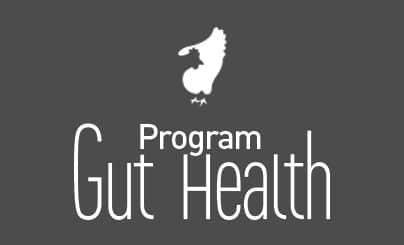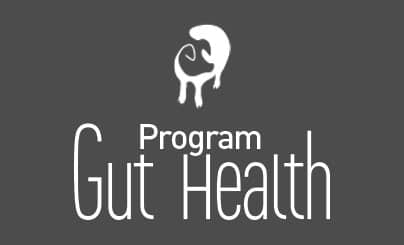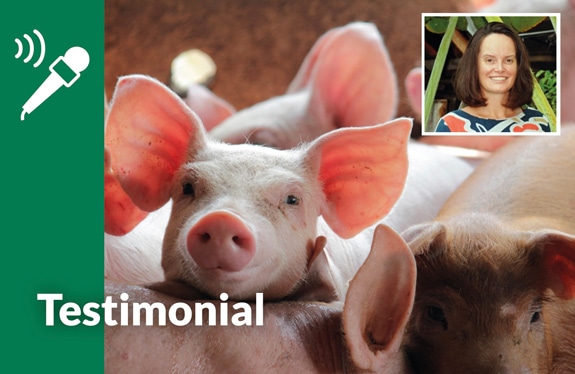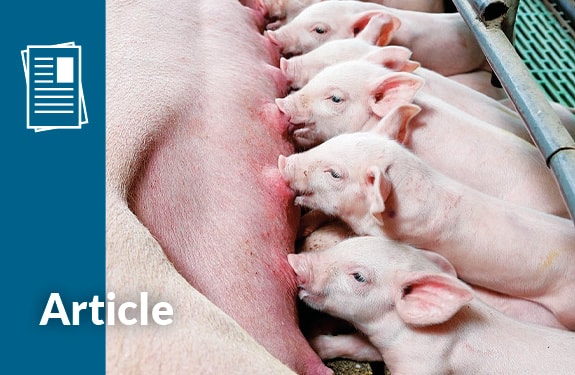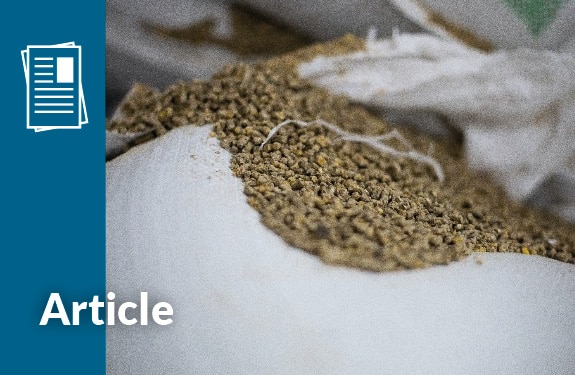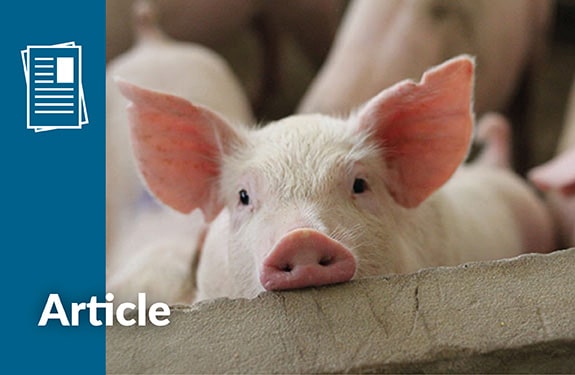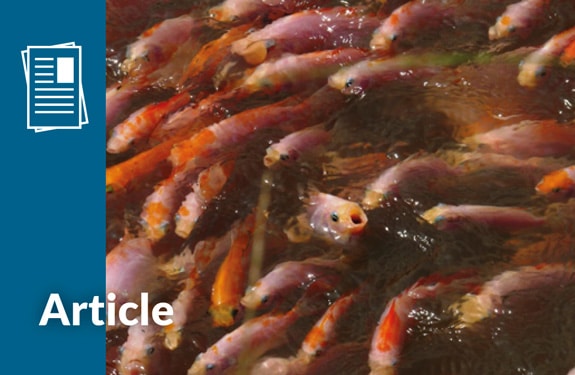Broilers Program Heat Stress
Stress disrupts an animal’s normal physiological equilibrium.
Heat stress depends on environmental factors (temperature and humidity – THI), species, age, weight, etc. THI measures the combined effects of ambient temperature and relative humidity to define the level of heat stress

Heat stress affects physiological equilibrium in broilers
High temperatures affect neuroendocrine system activity in poultry in two ways:
- increased plasma corticosterone concentration, due to activation of the hypothalamic-pituitary-adrenal (HPA) axis
- decreased secretion of thyroid hormones T3 and T4, which play a central role in energy metabolism
Heat-stressed birds redistribute blood to the periphery in an attempt to maximise radiant heat dissipation. Consequently, reduced blood and nutrient flow leads to hypoxia at the intestinal epithelium, which compromises intestinal integrity.
Integrated heat stress management strategy
Safmannan® may help to mitigate the detrimental effects of heat stress in broilers, maintain bird growth, performance, and survival. Heat stress impact may be mitigated by protecting gut integrity, limiting translocation of bacterial pathogens, and modulating the production of pro-inflammatory cytokines like lL-6, which can activate the HPA axis.
Modulating hormone balance under heat stress conditions
Sohail et al conducted a trial to evaluate corticosterone levels during a heat stress challenge. Results showed that corticosterone levels in birds in a Safmannan® supplemented group were significantly lower than in a heat-stressed positive control group.
Reducing body temperature and oxidative stress
2,800 broilers were randomly divided into 3 groups: negative control group, heat-stressed positive control group, and a Safmannan® plus heat stress group. Body temperatures were recorded several times a day. From D35-42, body temperatures were significantly lower in the Safmannan® group than in the heat-stressed positive control group.
Heat stress is characterised by increased energy requirement, resulting in increased free radical (ROS) formation. A trial was conducted to compare the effects of Safmannan® and an AGP (bacitracin) in broilers during exposure to chronic heat stress. The trial demonstrated that supplementing the heat-stressed broilers’ diet with 250g/t of Safmannan® reduced lipid peroxidation, significantly more than the AGP.
Optimizing vaccine response under heat stress conditions
A trial was conducted in India in 2016 to compare the effects of Safmannan® and an AGP on broilers exposed to chronic heat stress. 1,464 day-old male broilers were randomly divided into 4 groups. The negative control group was placed in house 1, under controlled conditions. The other groups were placed in house 2, under natural heat stress conditions (35 °C until D42) and kept at a higher density (+ 3 birds per m²). Newcastle disease virus (NDV) antibody titers were significantly higher in the Safmannan® group than in the other groups, including the AGP group, with BMD at 500 g/t of feed (bacitracin).
Increasing survival during severe heat stress challenge
A trial involving 2,800 birds, randomly divided into 3 groups, demonstrated that survival rates under severe heat stress conditions were considerably better with Safmannan® supplementation than in a heat-stressed positive control group.
Improving performance during severe heat stress challenge
Trial results have demonstrated that supplementing heat-stressed broilers’ feed with 500g/t of Safmannan® significantly improved feed conversion ratio (FCR), compared with an un-supplemented heat-stressed positive control group. Bird bodyweight at D42 was significantly heavier in the Safmannan® group than in the positive control group.
Reducing FCR and mortality during severe heat stress challenges
Another study, carried out in Brazil in 2017, demonstrated that both FCR and mortality rate were better in the Safmannan® group than in a control group. Supplementing heat-stressed broilers’ feed with Safmannan® at 250g/t can help to mitigate the negative effects of heat stress.
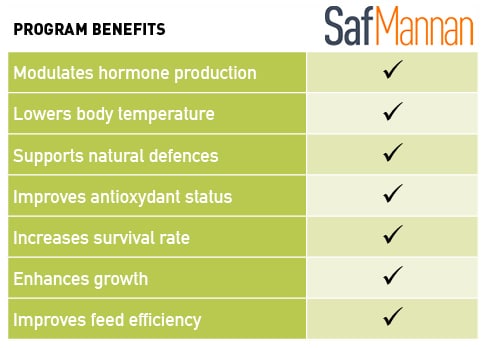
This statement has not been evaluated by the FDA. This product is not intended to diagnose, treat, cure, or prevent any disease. Not all products are available in all markets nor associated claims allowed in all regions. The information provided in this document is to the best of our knowledge, true and accurate. However, products must only be used in compliance with local laws and regulations and we cannot guarantee freedom of use for every intended application or country.
